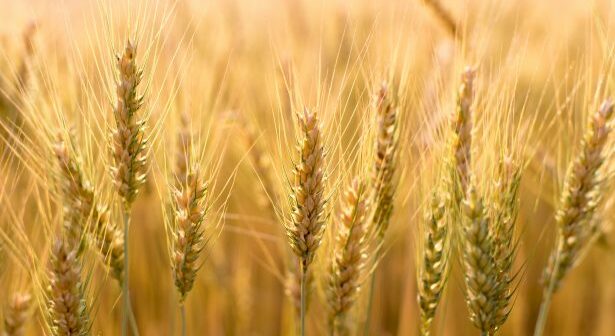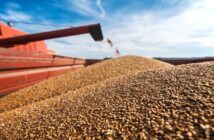As April draws to a close at last there is good news on grain prices. The latest AHDB Grain Market Report shows UK feed wheat futures (May-24) at £179.95/t and new crop futures (Nov-24) at £205.00/t, both climbed steadily through the week.
The new crop gained close to £10.00/t due to concerns over US wheat conditions and ongoing Black Sea tensions.
Forecasts of continued dry weather in Caucasus, a key wheat area in southern Russia, support the bullish direction of prices as concerns rise over crop conditions. In addition, India is reportedly struggling to replenish national wheat stocks as a result of higher domestic prices and challenging weather. This could require the nation to import wheat from the global market for the first time since 2017.
Results for rapeseed this week have been mixed. The Paris new crop futures contract (Nov-24) gained €11.00/t from last week’s close and currently stands at €465.50/t. Rapeseed futures (May-24) moved the other way as a result of weakness in the vegetable oils complex and stand at €441.75/t.
Soyabeans dominate the oilseed complex, accounting for 74% of global production last year. However, recently, rapeseed has shown signs of a moderate disconnect as soyabean futures have come under pressure from ample supply, while rapeseed is supported by a rise in the oil markets and forecasts of a tightening balance.
Crude oil markets began trading upwards at the start of the year and have continued their upward trajectory into March and April. Nearby Brent crude futures surpassed $90/barrel in early April, a price not seen since October 2023. Support came largely from increasing global geopolitical tension as well as an anticipated tighter balance for the remainder of the year. While the oil market has softened slightly since the April high, prices remain firm which is providing some support to the biofuels market.
Furthermore, looking towards the new marketing year for rapeseed, forecasts suggest the balance is tightening. Statistics Canada forecasts a planted area of 8.658 Mha for harvest 2024, a 1% decline over the five-year average. Rapeseed planting is also forecast down in the EU due to adverse weather conditions.
The EU and Canada account for a significant proportion of global rapeseed production, so therefore a contraction of planting next year applies notable pressure on the global supply and demand balance.
Tensions in the Middle East have influenced the market, impacting oil markets and filtering through to the vegetable oils sector. The likelihood of a tighter global rapeseed balance next year could continue to offer support to the premium.




